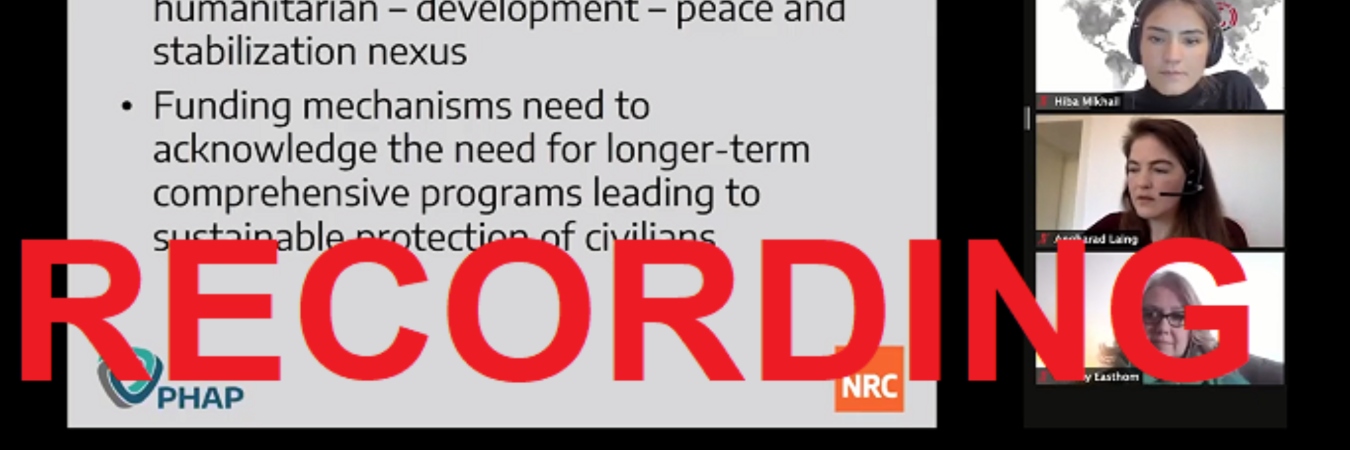
Now available−Recording of the event on Strategies and approaches for direct prevention of violence
If you did not get a chance to join the first session of the PHAP and NRC webinar series on Civilian Safety in Armed Conflict that took place on 23 March, you can now access the event audio and video recordings.
On 23 March, PHAP together with the Norwegian Refugee Council (NRC) organized the first in a two-part webinar series exploring existing efforts to improve the safety of civilians during armed conflict. This event discussed “primary” prevention programs, which focus on advocacy, armed actor behavior change, and direct engagement with armed actors, either by the humanitarian organization or by facilitating this engagement by communities.
Joined by experts from civil society organizations and UN agencies, participants had the opportunity to hear about their approaches to primary prevention – what the main considerations are and in which situations they are effective. We also discussed what other organizations can learn from their approach and the implications this has for the humanitarian community as a whole.
Kicking off the discussion was Liza Baran, Country Director for Ukraine at Center for Civilians in Conflict (CIVIC), who briefed participants on the significance of building the capacity for civilian protection during armed conflict while speaking on their multi-tier approach in Ukraine as an example. Following this was Hiba Mikhail, Regional Legal and Policy Coordinator MENA & Colombia, Geneva Call, who spoke on their approach of engaging armed non-State actors (ANSAs) towards improved protection of civilians in armed conflict. She also shared lessons learnt in civilian safety, including having an inclusive and transparent approach; having a dialogue and consult with local actors; building local capacities and long term relations; and strengthening the role of women in militarized and often male-dominated spaces.
Tiffany Easthom, Executive Director, Nonviolent Peaceforce highlighted their unarmed civilian protection (UCP) nonviolent approach which refers to the use of unarmed civilians working to reduce incidents and cycles of violence and increase the safety and security of civilians impacted by systemic violence. Pilar Gimeno Sarciada, Head of the Protection of Civilian Population Unit, International Committee of the Red Cross (ICRC), shared some insight into ICRC's prevention approach which is done through three interrelated types of prevention work: Structural prevention, Frontline prevention and Bilateral or multilateral prevention. She also shared a success story of meeting with an armed group before a military offensive that resulted in a public statement/instructions to fighters to avoid any civilian casualties.
If you missed this event, you can now access the video and audio podcast format version of the event recordings on the event page.
Access the recordings